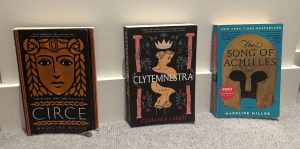It’s a culture not a costume
October 27, 2017
Cultural appropriation is complicated. We get it. Who’s to say that dressing up as a gangster is alright but Mulan crosses a line? Cultural appropriation is complicated. We get it. Who’s to say that dressing up as a gangster is alright but Mulan crosses a line?
About the only thing that everybody can agree on is that black face (and the less commonly criticised “yellow face” ) is bad. Though undoubtedly, somebody will miss the memo on that one too.
We would like to add another unconditional rule: don’t use an entire culture as your costume. That means you’ll have to set aside your “Mexican” poncho and sombrero, even if you think it would be super funny. Name a specific mexican figure from the past or present and we can talk.
The truth is, if you are white, it is not your job to decide whether your costume was crafted with sensitivity or not. As a member of the historically favoured culture, there is a power balance at play which is not always apparent. To assume one can accurately assess whether their own costume is an appropriate depiction of another’s culture is a facet of this historic and ongoing power imbalance.
Your parodying of a culture as a costume is not an homage or a sign of your respect. It is simply distasteful at best, deeply offensive at worst.
When you dress up as a culture, you channel all the existing stereotypes about that people group and consolidate them into a gross display of your indifference towards actual issues of race relations.
Would your Halloween be incomplete if you didn’t anger at least one culture? There are better ways to spend your time than planning costumes that will make your other white friends laugh at the expense of a minority group.
These are not issues that begin and end on October 31. As the fashion industry and celebrities seek new frontiers, the styles and symbols of other cultures are appropriated, often with little deference or acknowledgment of their origin. Kylie Jenner notably posted a picture on her Instagram of her “birthday braids” –cornrows.
No statement was made of the historical significance of this hairstyle or its significance to the black identity. It would misunderstand those who fight for civil rights to believe that white women wearing corn rows as a fashion statement helps black women who are still not allowed to wear this traditional, and functional, hairstyle at their places of work.
We recommend that you play it safe this Halloween day and weekend. When you’re putting on your costume, take into consideration the message it might send to people around you.











































